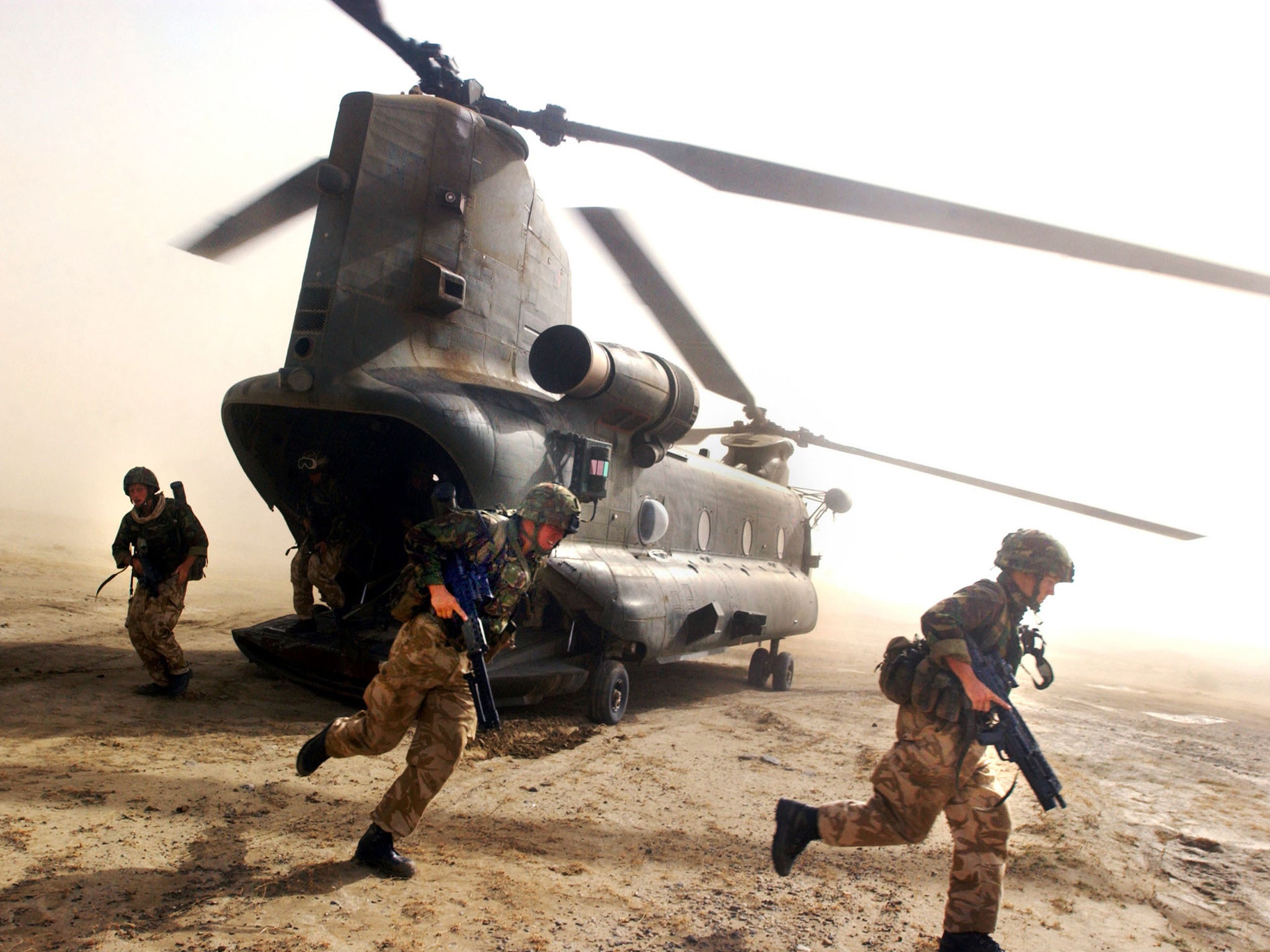Budget 2015: Decade of commitment to spend 2% of GDP on defence praised by US
America had been pressing for defence to be given priority in the UK

Britain will maintain defence spending at Nato’s target for member states of 2 per cent of gross domestic product for the next decade.
The Chancellor’s commitment has gained approval of Western allies – especially the US, who have been pressing for defence to be given priority.
The previous Coalition government had declined to make the pledge for the UK beyond the next financial year.
Nato forecast last month that it expected spending by the 28 members to fall this year despite promises to the contrary by leaders.
Mr Osborne’s announcement was immediately welcomed by US ambassador Matthew Barzun, who said on twitter that it was “proving again the indispensability of the UK to global security.”
General Sir Nicholas Houghton, welcomed the announcement and said it was a “great day for our country”.
Budget 2015: Budget 2015: The winners and losers
What George Osborne said... and what he really meant
Protesters block roads around Parliament ahead of Budget
The Chief of the Defence Staff said it would “change the whole dynamic” of the forthcoming strategic defence and security review, which had threatened to see a “managed decline” of military capability. “What this does is give us positive choices for the future.”
The Chancellor also stated a real increase in the defence budget would be taking place every year with treasury aides suggesting it could rise to £47.7bn from the current £38bn by 2020.
An additional joint security fund of £1.5bn a year will be established, to be shared between the MoD and the intelligence agencies on a contingency, “needs”, basis.
In the immediate term, the MoD will lose £300m of funding compared to last year.
In the future both its budget and the joint security fund is likely to be padded out by moving funds from other government departments; a scenario that Julian Lewis, the Tory chairman of the Commons Defence Select committee has described as a “financial sleight of hand”.
Budget 2015: The story of the Budget in four charts
Watch Iain Duncan Smith perform double fist pump during Budget
Three ways the Budget announcement is bad news for students
Defence Secretary Michael Fallon proposed last month a portion of aid money could be diverted, saying that sums spent on post-conflict stabilisation programmes could be counted as part of the defence budget. He maintained that it was “fair and interesting” to pursue this option.
His remarks followed David Cameron’s suggestions that foreign aid spending could be used to try to prevent migrants from getting into Europe and the UK from across the Mediterranean.
The Government is said to be looking at plans to strengthen borders and security in a number of sub-Saharan states.
What does five more years of the Tories mean for Britain?
Show all 8Since trafficking from North Africa and the Middle East is being increasingly seen as an avenue for terrorist infiltration, analysts point out that this could be categorised as defence spending.
Mr Lewis had charged that Mr Fallon’s proposals on diverting funds from aid were attempts to “make it look as if we were spending more in real terms on defence”. Defence spending remains an emotive issue among many Conservative MPs and there can be little doubt the promises made by Mr Osborne will be subject to much scrutiny.
Terror Victims Permanent memorial
British victims of terrorist attacks abroad are to be honoured with a permanent memorial. Another will specifically honour the victims of the recent Tunisia attack. The location and design have not yet been chosen.
“In the week of the poignant anniversary of the 7/7 attacks, we should recognise too our victims of terrorism overseas have no permanent memorial,” the Chancellor said. “We will now fund one, as well as a specific memorial to those murdered in Tunisia.”
WWII Fighter command renovation funded
The renovation of the RAF’s Group Fighter Command Centre in west London is to receive Government funding. The bunker, in Boris Johnson’s Uxbridge and Ruislip South constituency, housed Fighter Command No 11 Group Operations during the Second World War, but has fallen into disrepair.
In an apparent jibe at Mr Johnson’s opposition to Heathrow expansion, Mr Osborne said: “Let its renovation stand as a monument... to the days when aeroplanes flew freely over the skies of west London.”
Subscribe to Independent Premium to bookmark this article
Want to bookmark your favourite articles and stories to read or reference later? Start your Independent Premium subscription today.

Join our commenting forum
Join thought-provoking conversations, follow other Independent readers and see their replies